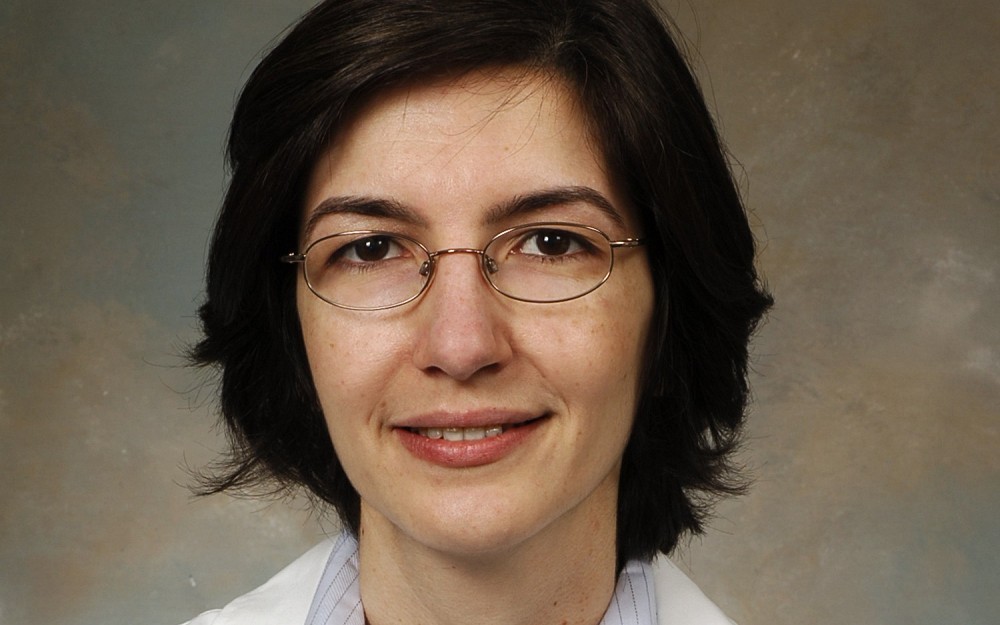
Reversing Gastric Bypass May Not Reverse Hormonal Changes Caused by Surgery
Gastric bypass surgery has been shown to be one of the most effective treatments for obesity, and often improves Type 2 diabetes immediately after surgery and long before any weight loss has occurreda phenomenon thats been attributed to earlier and larger insulin response to meal ingestion.
How and why these changes occur after gastric bypass surgery, however, is the ongoing pursuit of University of Cincinnati (UC) researchers.
A recent case study led by Marzieh Salehi, MD, associate professor in the division of endocrinology, metabolism and diabetes, provided Salehi and colleagues the rare opportunity to compare glucose metabolism in an eight-year post-surgery gastric bypass patientwith an existing gastric feeding tube due to other medical reasonsto a group of healthy controls.
The study appears in the May online edition of the journal Diabetologia.
What makes this case study so significant, says Salehi, is that the participant could ingest nutrients both orally and via the gastric feeding tube (going through or bypassing foregut, a re-routed stomach pouch attached to the small intestine), allowing researchers to test whether the actual route of meal ingestion made a difference when it came to how the participants body metabolized glucose.
While it is commonly agreed that weight loss-independent effects of gastric bypass on glucose metabolism are due to the enhanced secretion, and action, of one of the gut hormones, GLP-1, the question remained as to whether this increase is due to the rapid transit of nutrients through the reconfigured gastrointestinal tract.
The studys key finding, says Salehi, is that the gastric bypass patient she studied had increased plasma GLP-1 concentrations and GLP-1 action independent of the route of feeding compared to healthy controls, making it "likely that the increased secretion and action of GLP-1 after gastric bypass surgery is not entirely due to rapid passage of nutrients into the lower gut.
Although these findings pertain to a single-person case study, Salehi says they are in keeping with previous results that indicated an increased role of GLP-1 in the insulin response following gastric bypass.
"Understanding the underlying mechanisms by which gastric bypass improves blood sugar levels will guide the development of therapeutic options, as GLP-1 based drugs have been utilized for treatment of diabetes over the last decade, says Salehi.
These findings are of particular interest to Salehi, who studies a subset of gastric bypass patients who, post-surgery, develop post-meal hypoglycemia (low blood sugar resulting from too much insulin secretion).
"In patients with severe hypoglycemia, gastric bypass reversal is a consideration, Salehi says, "but our new findings show that simply reversing gastric bypass several years after surgery may not reverse the hormonal effects brought on by the surgery itself, namely a new cross-talk between gut and pancreas.
Co-authors include David DAlessio, MD, of the University of Cincinnati and Cincinnati Department of Veterans Affairs (VA) Medical Center, and Amalia Gastaldelli, PhD, of the Cardiometabolic Risk Unit, Institute of Clinical Physiology, Pisa, Italy.
This study was funded by grants from the National Institutes of Healths National Institute of Diabetes and Digestive and Kidney Diseases (DK57900, DK083554) and in part by the NIH National Center for Advancing Translational Sciences (8 UL1 TR000077) and the Medical Research Service of the Department of Veterans Affairs.
Tags
Related Stories
Machine learning brings new insights to cell’s role in...
April 30, 2025
Researchers led by the University of Cincinnati’s Anna Kruyer and the University of Houston’s Demetrio Labate have published research in the journal Science Advances applying object recognition technology to track changes in brain cell structure and provide new insights into how the brain responds to heroin use, withdrawal and relapse.
Most teens prescribed SSRIs did not have recommended follow-up...
April 30, 2025
The University of Cincinnati and Cincinnati Children's Hospital Medical Center's Martine Lamy commented to Medscape on new research that found fewer than half of the adolescents prescribed a selective serotonin reuptake inhibitor (SSRI) at two large Chicago pediatric primary care clinics had a follow-up visit within the recommended 6 weeks.
Students shine at 2025 CAHS Scholarly Showcase
April 29, 2025
Nearly 200 students and more than 40 alumni judges participated in the 2025 CAHS Scholarly Showcase at the University of Cincinnati, featuring 82 research projects across allied health disciplines.
